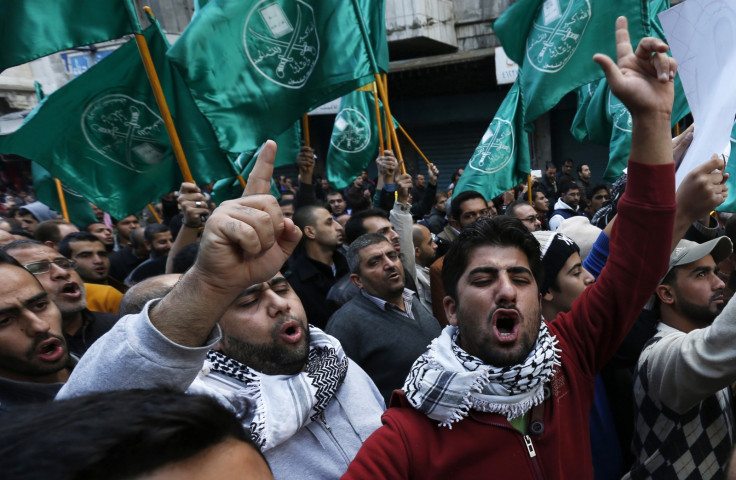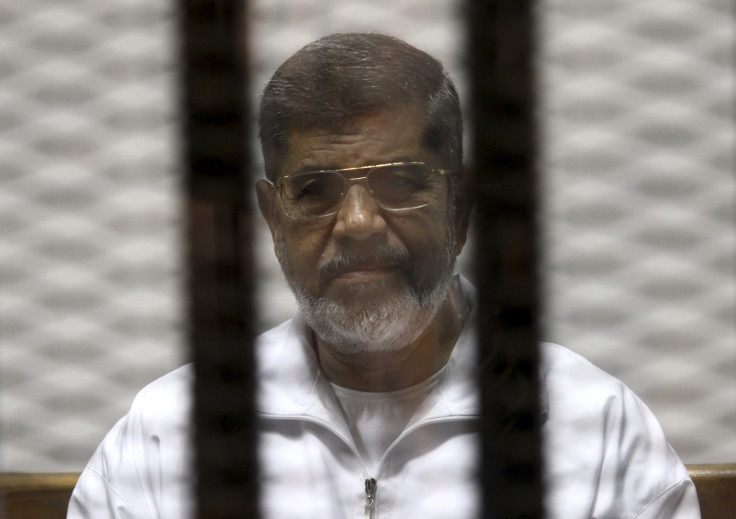Why is the Trump administration targeting the Muslim Brotherhood as a terrorist entity?
Under the move, the Muslim Brotherhood would join Isis and al-Qaeda as terrorist entities.

As it seeks to remould US foreign policy the Trump administration is considering designating Iran's Revolutionary Guard and the Muslim Brotherhood as terrorist organisations.
The Wall Street Journal reports that the move would see the US significantly expanding its sanctions against Islamist organisations in the Middle East. The Muslim Brotherhood, which many western governments hoped would play a stabilising role in the region following revolts across the Arab world in 2011, would join Isis and al-Qaeda as terrorist entities.
The terror listing of the Muslim Brotherhood, made by executive order, would gratify Arab secular autocracies across the Middle East, many of which have grappled with protests and insurgencies at least in-part driven by supporters of the brotherhood since 2011.
Egypt, Saudi Arabia and United Arab Emirates consider the brotherhood an illegal organisation. However the group holds some power in the parliaments of Jordan and Tunisia and has strength in Qatar and Turkey. Also with millions of supporters in the US and Europe, banning the organisation could lead to a widespread backlash.
The international NGO Human Right's Watch has strongly warned against the move. "Designating the Muslim Brotherhood a 'foreign terrorist organization' would wrongly equate it with violent extremist groups like al-Qaeda and the Islamic State and make their otherwise lawful activities illegal," Laura Pitter, senior US national security adviser at Human Rights Watch said in a statement.
"The designation would also unfairly taint anyone alleged to be linked to the Muslim Brotherhood and undermine the exercise of its political rights abroad," she added.
Senator Ben Cardin on the Senate Foreign Relations Committee was quoted by the Wall Street Journal as saying Muslim Brotherhood was "a terrorist type organisation". He added however, the US needed to consult with allies to understand possible fallout from designating the group.

"Before we do official action, it's important that we weigh the consequences of what we do. The politics of Egypt, the politics of Jordan are connected to that," he said.
The arrival of Donald Trump in the White House has been seen as opportunity for closer ties between Egypt and the US. The Egyptian government has claimed Egyptian strongman Abdel Fatah al-Sisi was the first to congratulate Trump on his victory.
Just suggesting putting the brotherhood on the terror list will greatly please Cairo, where the country's first democratically elected president Mohammed Morsi, a member of the Muslim Brotherhood was ousted in a coup in June 2013.
"The rhetoric alone of this Trump administration is much more forward leaning in its support towards Sisi than Obama," said one U.S. official told Reuters. "I expect it to be a much closer relationship."
"The (Trump) administration has signalled repeatedly that it sees the Muslim Brotherhood as virtually indistinguishable from groups like al-Qaeda or even Islamic State," said Eric Trager, a fellow at The Washington Institute for Near East Policy was quoted by the agency as saying.
"This is something Cairo is very excited about and Arab partners favour as well," he added.
© Copyright IBTimes 2025. All rights reserved.






















